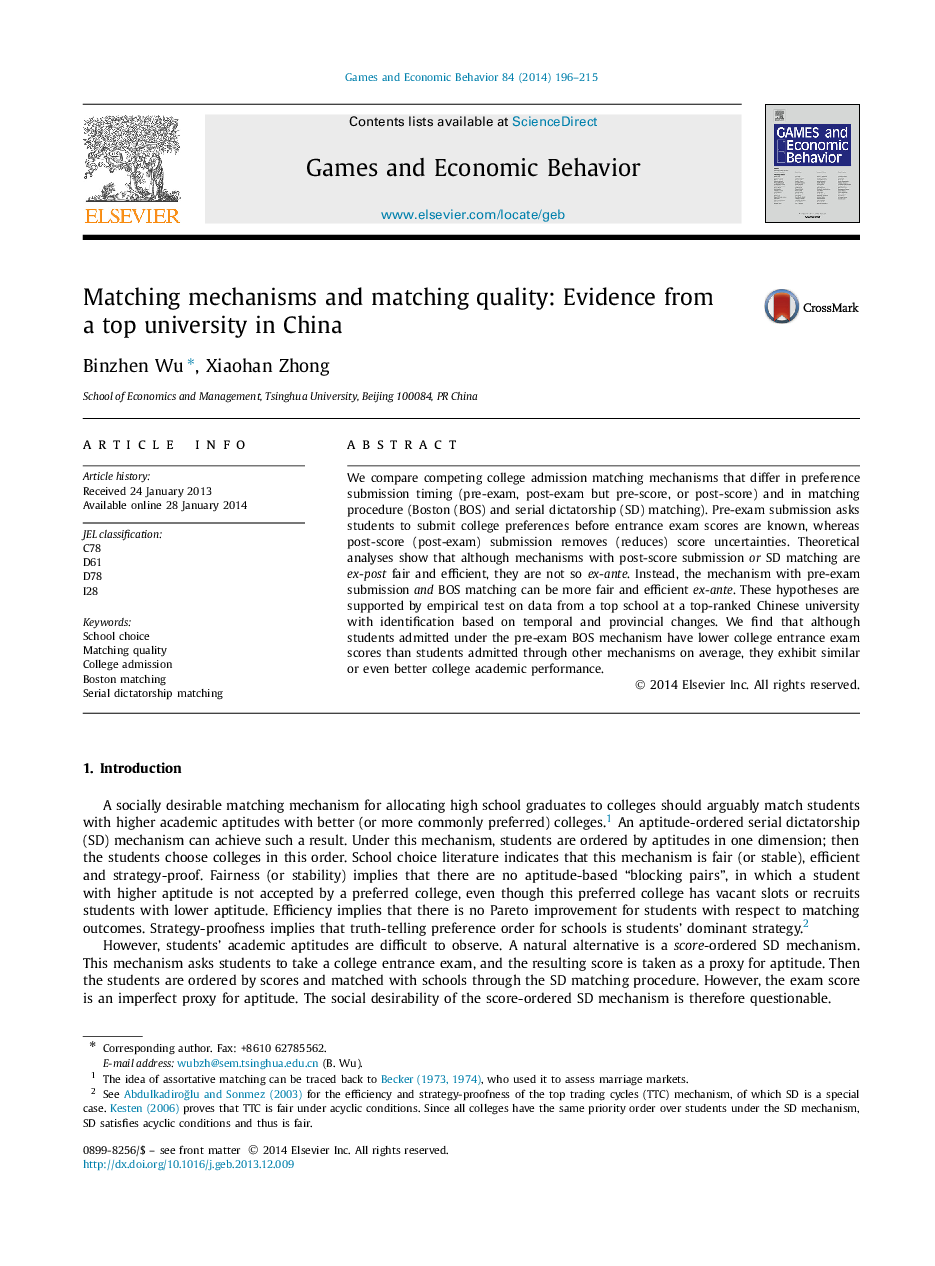| Article ID | Journal | Published Year | Pages | File Type |
|---|---|---|---|---|
| 5071833 | Games and Economic Behavior | 2014 | 20 Pages |
Abstract
We compare competing college admission matching mechanisms that differ in preference submission timing (pre-exam, post-exam but pre-score, or post-score) and in matching procedure (Boston (BOS) and serial dictatorship (SD) matching). Pre-exam submission asks students to submit college preferences before entrance exam scores are known, whereas post-score (post-exam) submission removes (reduces) score uncertainties. Theoretical analyses show that although mechanisms with post-score submission or SD matching are ex-post fair and efficient, they are not so ex-ante. Instead, the mechanism with pre-exam submission and BOS matching can be more fair and efficient ex-ante. These hypotheses are supported by empirical test on data from a top school at a top-ranked Chinese university with identification based on temporal and provincial changes. We find that although students admitted under the pre-exam BOS mechanism have lower college entrance exam scores than students admitted through other mechanisms on average, they exhibit similar or even better college academic performance.
Related Topics
Social Sciences and Humanities
Economics, Econometrics and Finance
Economics and Econometrics
Authors
Binzhen Wu, Xiaohan Zhong,
